Some of the links in this post are affiliate links. This means if you click on the link and purchase the item, I may receive an affiliate commission at no extra cost to you.
There are a number of things not to do in Italy that are not known to travelers. Some are things that make sense if you really think about it, others are just plain weird. The reason being that things are done differently in Italy, and Europe in general, to how they are done back home. Many Italian customs may be unfamiliar or even confusing to Americans, Australians and even people from other countries outside of Europe.
However, don’t worry, we’ve got you covered so you don’t make any embarassing faux pars on your trip, or end up with a hefty fine for something you wouldn’t have expected *cough Venice*.
Things Not to do in Italy
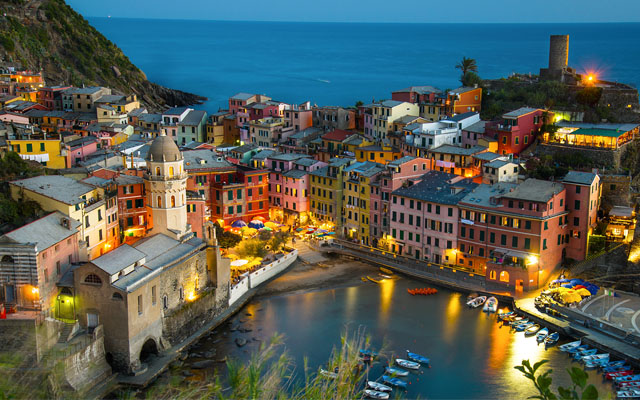
Don’t go Without Learning Some Italian
Italians are known for their hospitality, and one of the best ways to show your appreciation is to at least try and speak some of the language.
Learning a little Italian will also help you immensely while traveling in Italy. The locals will appreciate your efforts and be more likely to help you out if you are struggling. Plus, it’s just a really fun language to learn! Who knows, maybe you’ll even pick up a few phrases that will come in handy while touring some of Italy’s most famous attractions.
Here are a few key phrases to get you started:
“Ciao,” which means “hello” or “bye.”
“Mi dispiace,” which means “I’m sorry.”
“Per favore,” which means “please.”
“Grazie,” which means “thank you.
Don’t Forget to Book Ahead with Certain Attractions
Are you planning a trip to Italy soon? If so, be sure to book ahead for certain attractions! Some of the most popular sights in Italy, like the Colosseum in Rome or the Uffizi Gallery in Florence, can have incredibly long lines. You may be waiting for hours if you don’t book ahead.
Other popular destinations, like the Leaning Tower of Pisa, can also be quite busy during peak season so it’s best to reserve your spot in advance. By planning ahead, you’ll avoid any last minute stress and ensure that you’ll get to see everything you want during your vacation.
Don’t Expect a Giant Breakfast
Many tourists who visit Italy are under the impression that they will be able to enjoy a hearty breakfast at their hotel. Unfortunately, this is not always the case. A traditional Italian breakfast usually consists of a cappuccino or espresso and a pastry such as a croissant.
If you are looking for something more substantial, you may be able to find a buffet-style breakfast at your hotel, but it is not likely to include many American favorites like bacon and eggs. If you are looking for a filling breakfast while in Italy, I would recommend finding a local cafe instead.
Don’t Swim in the Blue Grotto in Capri
The Blue Grotto is a natural cave that can be accessed only by boat. The cave is filled with water that is a deep blue color and the cave ceiling is illuminated by sunlight. Its a must do attraction if you are visiting the Isle of Capri.
However, since the Blue Grotto has become such a popular tourist destination in Capri, swimming in the grotto has been made forbidden. Boat tours are still available, but visitors are no longer allowed to swim in the grotto.
In the past people have waited until the official tours stop and decided to go off swimming on their own. However this is extremely dangerous as the waves around the area can be rough and push people into the walls outside the cave. If you get caught you can expect a fine.
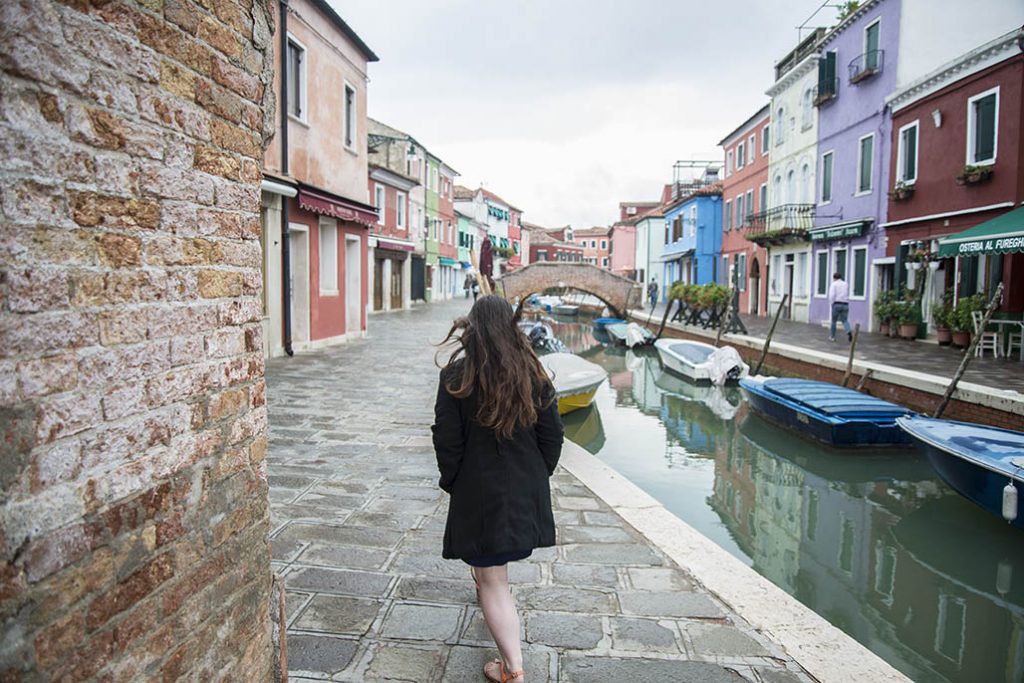
Don’t Fear Overdressing
When traveling to Italy, it’s important not to be afraid of being over-dressed. Italians take great pride in their appearance and often dress up for work or even for evening engagements. Fashion week is a massive thing here afterall, and there are so many talented designers coming out of Italy
While you may feel a bit under-dressed at first, you’ll likely find that most Italians are very welcoming and won’t necessarily judge you for it. If you have nicer clothing though, don’t be afraid to wear it at meal times or for sightseeing. You’ll fit right in.
Just relax and enjoy the experience – you may find that dressing up a bit more than usual is actually a lot of fun!
Wrap Your Spaghetti, Don’t Cut it
What you may not know is that people in Italy wrap their spaghetti around their forks, rather than cutting it. This method was found to be more efficient and reduced the amount of sauce that was lost. It also prevented the pasta from sticking to the fork.
Researchers believe that this tradition began in Naples, and has since spread throughout the country. Some of us this outside of Italy, others prefer to chop their spaghetti up, but for others, consider trying it the Italian way while on your holiday.
As they say, when in Rome, wrap that tasty carb!
Don’t Forget to Validate your Train Ticket
When you purchase a train ticket in Italy, make sure you validate it before boarding the train. This can be done at a validation machine located near the train platforms. If you don’t validate your ticket and you’re checked, you will be fined.
Side note: if you have a ticket on your phone, keep it fully charged or atleast have a charger in your bag. Ticket inspectors really do need to see your tickets, as there’s no other way for them to know you’ve paid your fare.
Don’t Expect Cheap Hotels
When planning a trip to Italy, be prepared to spend a bit more on your accommodations than you might elsewhere in the world. Especially when the strength of the euro is high. Although there are some lower-priced options, hotels in Italy can be expensive, even hostels. A cheap hostel in Italy may be the same as a decent mid-range hotel in Asia, so plan your budget accordingly.
If you’re looking for a bargain, consider staying outside of the most popular areas, or opting for a bed and breakfast instead of a full-service hotel.
Don’t Underestimate the Summer Heat
If you’re planning on spending your summer vacation in Italy, be prepared for the heat. The summer sun can be brutal and oppressive, and if you’re not used to the heat, it can quickly take its toll. Drink plenty of water, especially if you’re going to be out in the sun all day. And don’t forget to use sunscreen – even on cloudy days.
When sightseeing, take breaks in the shade whenever possible. If you’re visiting a city like Rome or Florence, be sure to explore the shady side streets as well as the busy piazzas. And when it comes time for a siesta, take a break in an air-conditioned bar or restaurant.
Don’t Build Sandcastles in Eraclea
Thinking of getting your hands covered in sand in Eraclea, building a sandcastle with your kids? Well, you can no longer do that.
Eraclea has banned building sandcastles as officials have determined they create obstacles for other beachgoers. It’s all part of the local majors efforts to keep the city safe. You also can’t take any shells off the beach here.
There are a lot of different opinions on these new policies.
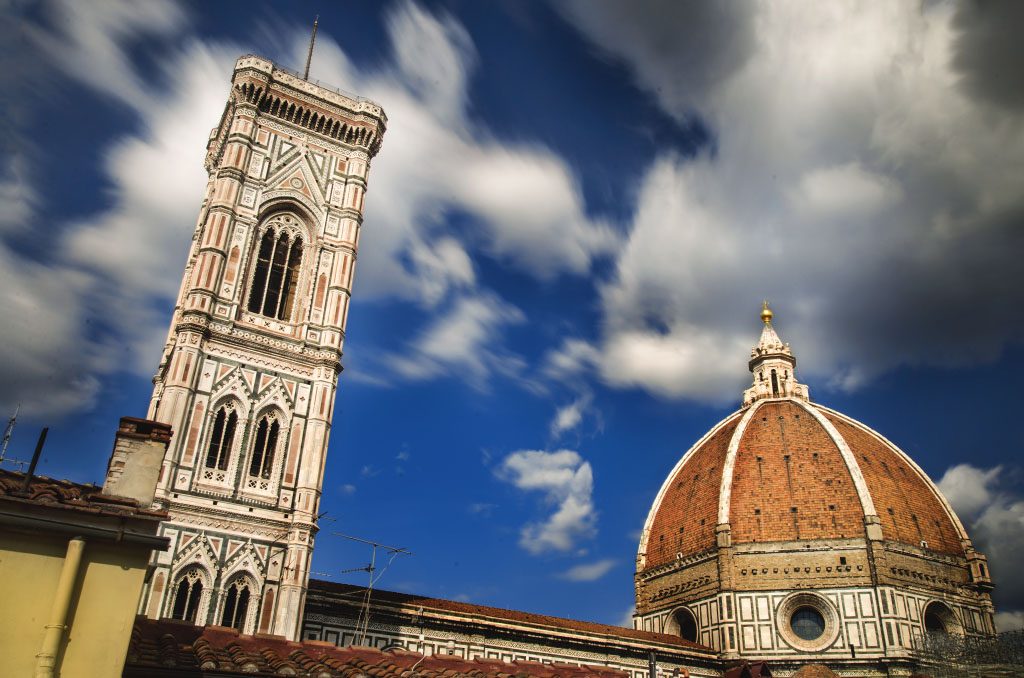
Don’t Swim in the Venice Canals
Venice is a city built on water, with canals running through the heart of it. For tourists, it’s a lovely place to take a gondola ride or wander the streets, but for locals, the canals are a way of life. Unfortunately, this also means that Venetians have to put up with tourists who don’t know better than to swim in them.
The City of Venice has been trying to crack down on people swimming in the canals for years now, and has even installed signs warning people not to do so. But despite the warnings, people continue to jump in – often with disastrous results. Because the water is so murky and there are so many boats travelling through the canals, it’s easy to get lost or injured.
If you’re caught swimming in the canals, you’ll get a hefty fine.
Don’t go to Venice Without Reading about Other Fineable Offenses
Venice recently introduced a number of laws regarding what tourists can and can’t do in the city. This has happened due to overcrowding and bad behaviour. Some of them can seem a bit silly or over the top, but it is what it is. Others make sense as the city tries to manage the large amount of visitors that come through each day. Failing to adhere to the rules will land you a decent sized fine.
Some of the following things are now punishable by fine in Venice:
- Picnicking in a public space – this includes making coffee and eating sandwiches.
- Lying down on benches
- Walking around without a shirt
- Leaning against storefronts
- Feeding Pidgeons
- Riding or walking a bicycle through the city centre
You can find more about the new rules here.
Don’t Bring Heavy Luggage
If you’re planning on traveling to Italy, don’t bring any heavy luggage with you. It’ll be a pain lugging your heavy suitcase around over the cobblestone streets, and if you take a heavy backpack, you’ll end up having a sore back by the time you’re done.
If you can, try to pack everything into a 65L bag, or similar sized suitcase, so that you don’t have to worry about it. And if you really need to bring a lot of stuff with you, consider renting a car or using public transportation instead of walking everywhere.
Don’t Swim in Fountains
Rome is cracking down on fountain swimming. The city has just passed a law making it illegal to take a dip in any of Rome’s famed fountains, and those caught swimming will be fined.
The move is an effort to keep the fountains clean and protect them from damage, as well as to discourage tourists from engaging in uncivilised behaviour. In addition to the fine, offenders may also have their passports confiscated.
While some locals are unhappy with the new law, most seem to agree that it’s a necessary measure.
Don’t Have Dinner Too Early
Italy is known for its food, wine, and culture. But one thing that you may not know is that most restaurants do not open until 7pm. This means that if you are planning on having dinner in Italy, you should not plan on eating too early. Many restaurants close at around 10pm, so make sure to plan your meals accordingly.
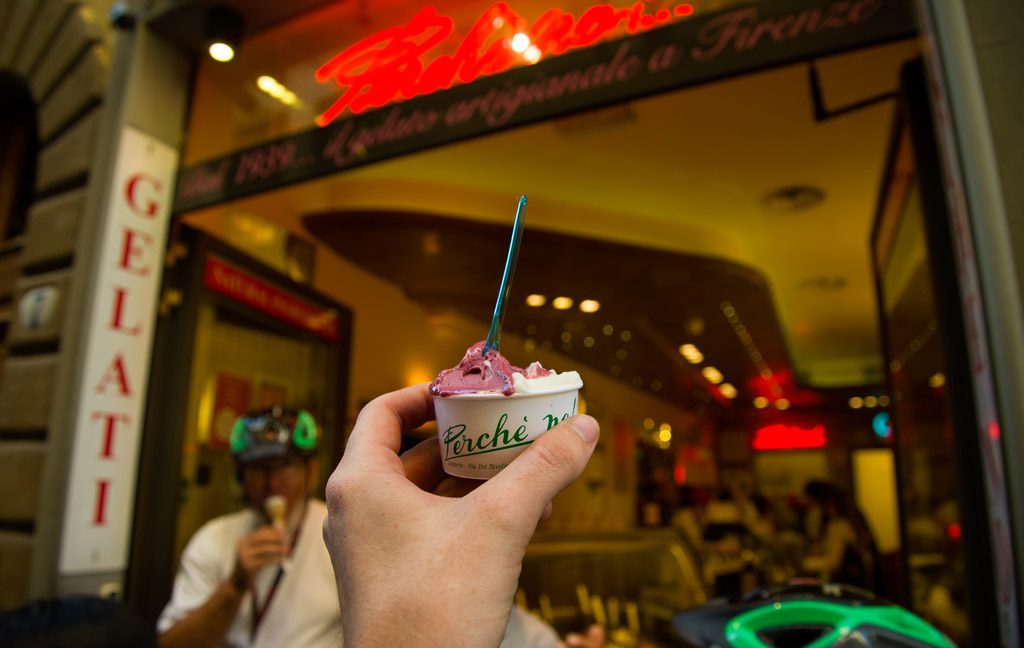
Cheese on Seafood Pasta or Risotto is a No No
When it comes to seafood pasta or risotto, many people like to add cheese for extra flavor. However, in Italy this is frowned upon. The cheese can overpower the delicate flavors of the seafood and ruin the dish. If you want to add cheese to your seafood pasta or risotto, try going without or a different variety such as Parmesan or Romano.
Don’t Over Tip
In America, it has become customary to tip highly due to your servers not being paid a living wage. This is not the case in Italy, where waitstaff are paid a living wage and tipping is not expected. For Americans, this means that you are often tipping more than you should.
Tipping is not a requirement in Italy. If you had a bad experience or if your server did not provide good service, you do not have to leave a tip. In fact, it may be seen as rude if you leave a tip when you did not receive good service.
When it comes to tipping in Italy, it is important to remember that its not expected, but if you do wish to tip, don’t go overboard.
Don’t Wear Flipflops in Cinque Terre
With crystal-clear water, rugged cliffs, and colorful houses, the villages of Cinque Terre are a popular tourist destination. While the villages are small, they can be quite crowded in summer, and navigating the steep, narrow streets in flip-flops is not recommended. Even if you don’t mind getting your feet wet, the rocks and shells on the beach can be treacherous in sandals. So leave your flip-flops at home and pack some sturdy shoes instead.
Travelers may be fined between 50-2500 euros for wearing inappropriate shoes such as flipflops, pumps and sandals inside the park. Its unclear how strictly the fine is enforced though. I’m unclear if this rule was in place at the time I visited, but they’re were plenty of people wearing sandals.
Don’t Sit on the Spanish Steps
There are plenty of places in Rome to sit, but the Spanish Steps are not one of them. Rome has passed this rule and you’ll get a fine if you’re caught. Although it may be tempting to take a break on these famous steps, visitors should avoid sitting on them. Not only is it uncomfortable, but it’s also bad for the steps themselves.
Sitting on the Spanish Steps can cause damage to the marble and limestone that make up the stairs. It can also lead to erosion, which can eventually ruin the steps. So if you’re looking for a place to rest your weary bones, find somewhere else in Rome. The Spanish Steps are meant to be enjoyed from afar.
Don’t Wave Down Cabs
When travelling to a new country, it’s important to be aware of the customs and norms of that particular place. One such custom that may differ from what you’re used to is how to hail a taxi.
In Italy, it’s not customary to simply wave down a taxi on the street like you would back home. You should either order one through your phone or via one of the taxi stands. This will ensure that you get in touch with a reputable driver who will take you where you need to go without any hassle.
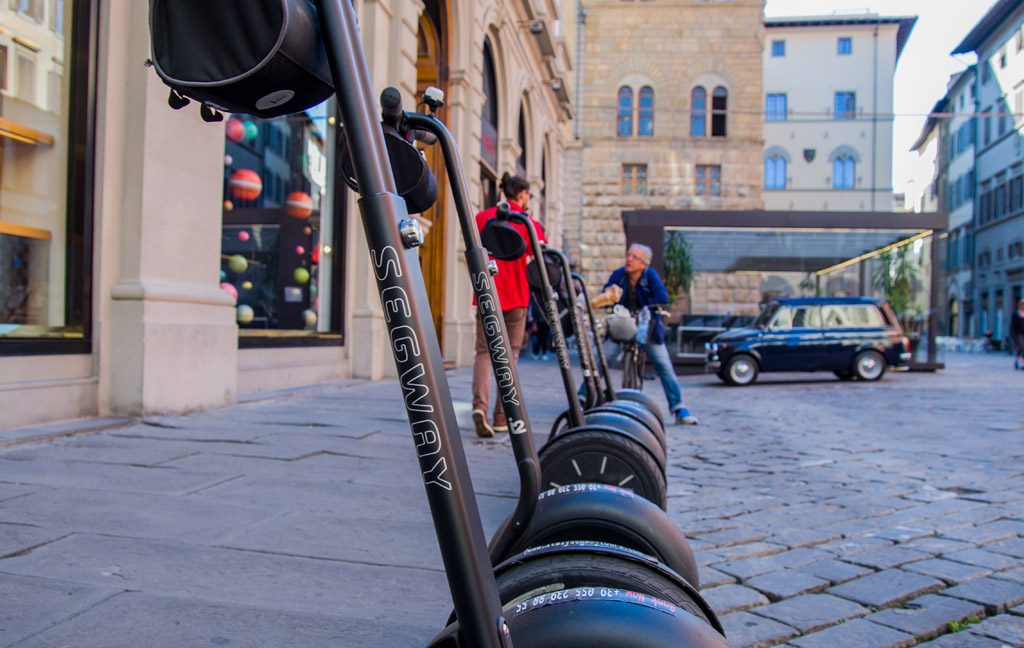
Don’t Misunderstand Coperto
Coperto is a thing that started in the middle ages. Travelers would eat their meals at an inn, but due to being poor, would take food from home in instead of paying for meals. Inn owners hence started charging a small fee per person.
Coperto is normalised in Italy, with Italians paying it too. It doesn’t matter if you eat at the place or not, a small fee of 1-5 euros will be charged per person. No need to worry about being scammed, its perfectly normal and common here.
Don’t Expect the Waiter to Bring your Bill Without Asking
In Italy, don’t expect the waiter to bring your bill without asking. When you’re ready to pay, you can request it. The waiter will then bring the check to the table, and you can then decide how to split the bill. If you’re paying with a credit card, the waiter will usually take it back to the kitchen to process.
Don’t Order a Cappucino After Noon
If you’re visiting Italy and want to order a cappuccino, be sure to do so before noon. After that time, the locals will likely give you a strange look if you order one, as it’s considered more of a breakfast drink.
Cappuccinos are made with espresso, hot milk, and foamed milk, and are usually served with a biscotto (cookie). If you’re looking for something to drink later in the day, opt for a caffe latte instead – this is an espresso with steamed milk.
Don’t go to Musuems on Sundays
If you’re looking to dodge the crowds while visiting some of Italy’s many museums, don’t go on a Sunday. That’s when all the locals go, because some places are free or much cheaper than normal.
In Rome, for example, the Colosseum and Capitoline Museums are both free on Sundays. The Vatican Museum is also free on the last Sunday of every month. And in Florence, the Uffizi Gallery and Accademia Gallery are both half-price on Sundays.
Don’t Leave your Belongings Unattended
When traveling in a foreign country, it is important to remember not to leave your belongings unattended. In Italy, this is especially true as someone may snatch them when you’re not looking. There have been many cases of tourists having their belongings stolen, so it is best to be vigilant at all times.
Keep your valuables with you at all times and make sure to lock your hotel room when you’re not in it. If you’re out and about, be aware of your surroundings and avoid leaving anything valuable in plain sight.
Don’t Expect Late Night Store Hours
Having access to late night stores and restaurants that open long into the night is common in America, but it’s not always the case in Italy. Many stores close their doors early in the evening, and restaurants outside the main tourist areas not being open as late as you’re used to.
This means that if you’re looking for late night shopping opportunities, you’ll likely have to look elsewhere. Dinner wise, keep an eye on the time and learn closing hours ahead of time so you don’t find yourself caught out.
Don’t Be Disrespectful if Things aren’t the Same as Home
There are many things that are different about living in a foreign country than at home. It can be easy to get frustrated when something isn’t the same as what you’re used to. However, it’s important to remember that you are in a different place and should act accordingly.
One of the biggest things to remember is not to be disrespectful of the culture and customs of the country you’re living in. Just because something is done differently doesn’t mean it’s wrong. It’s important to be patient and learn about the new culture before making any assumptions.
Another thing to keep in mind is that things may take longer than they do at home. In Italy, for example, people often take their time with everything they do. This can be frustrating if you’re used to things moving quickly, but it’s important to remember that this is just how things are done here.
